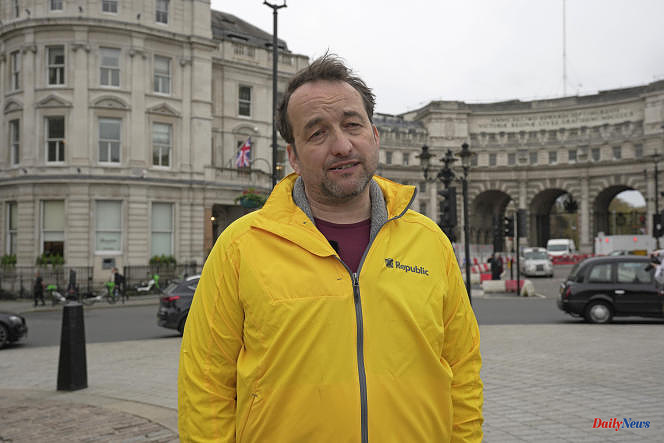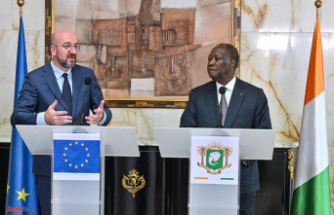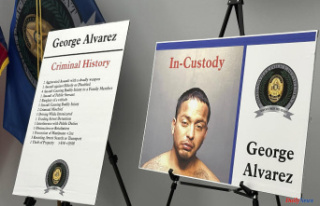London police said Monday evening, May 8, they "regret" that the six anti-monarchy protesters arrested on Saturday ahead of Charles III's coronation celebrations were unable to demonstrate as they had planned and stressed that no legal action would be taken against them.
Early Saturday morning, six people, all members of the anti-monarchy group Republic, including their leader Graham Smith, were arrested in central London as they walked to an area of King's Passage. Signs were then seized by the police. They were released late on Saturday, more than sixteen hours after their arrest, drawing heavy criticism.
In a statement Monday evening, the London police justified themselves at length by explaining that they had arrested six people “suspected of being equipped to chain themselves”.
Under a law that came into force on Wednesday, criticized as far as the UN, British police can arrest people in possession of equipment that could be used to chain themselves on public roads, a technique of protest and blocking regularly used by climate activists in the UK.
London police, however, added in their statement that “the investigation could not prove the intention to use (the seized objects) to chain themselves and disrupt the demonstration. »
Scotland Yard's fault
"We regret that the six people arrested were unable to join the group of demonstrators in Trafalgar Square and elsewhere on the route of the procession," concludes Scoland Yard, stressing that no prosecution would be initiated.
The arrest of Graham Smith and five other Republic members on Saturday was heavily criticized by the hundreds of anti-monarchy protesters who had gathered to boo the carriage carrying Charles III to Westminster Abbey. "It's something you expect to see in Moscow, not London," the human rights organization Human Rights Watch also said.
Graham Smith tweeted that three police officers came to his home on Monday evening and issued an apology. "The excuse is not accepted," he said.
Earlier in the day, he had criticized the new Public Order Act, which he said was introduced "to give them the power to arrest us on any frivolous pretext". "We no longer have the right to demonstrate in this country, we only have the freedom to demonstrate with the permission of the police and politicians," he told the BBC.
In total, London police made 64 arrests on the day of the King's coronation, including environmental activists.












